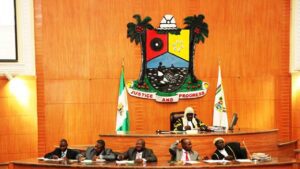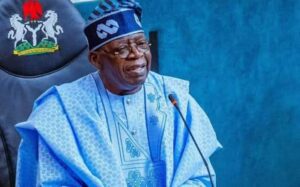
Enhancing digital-age communication for corporate reputation and profitability
By Goke Ilesanmi
Communication is simply defined as the process by which information is shared between two people or organisations, or among individuals, etc. It is very critical to success in (almost) all areas, including career and business. For communication to be relevant, we must ensure it is effective. It is effective when the intended feedback or result is achieved.
It is noteworthy that organisations and people who communicate effectively are more successful and peaceful. Mastery of communication allows you to effectively reach, sell and relate with a worldwide audience of customers for business transactions. In the business world, the bottomline is money, and communicating well saves – and makes – it.
The concept of effective communication has changed in scope and dynamics in this digital or information and communications technology (ICT) explosion age with multiplicity of technological devices and social media platforms.
The implication is that the world is now a global village with many career and business opportunities as well as global threats of career and business competition. We need to be able to communicate well to stay ahead of career and business challenges.
Four skills of communication
There are four communication skills. These are listening, reading, speaking and writing. Listening and reading are called “Receptive Skills” because they are about assimilation; while speaking and writing are called “Transmitting Skills” because they are about dissemination. And mastery of all these skills is very important. But we will pay more attention to writing and speaking skills in this discourse.
Language and Nigerian English effects
One thing that is very critical to effective communication is proficient application of language. Proficiency in English Language has become more important in business relationships today, especially that it is the showroom of one’s level of intelligence as a verbal first point of contact. English Language, spoken by about one billion people, is the MOST WIDELY spoken language in the world today.
However, research shows that the problem of Nigerian English usage is depriving many organisations and individuals in Nigeria of the opportunity of enhancing their business or career prospects globally due to communication breakdown. That is, even though the world has become a global village with many opportunities, due to information and communications technology explosion, lack of global understanding of the so-called Nigerian English has not allowed organisations and individuals here to reap bountifully.
Regional variants and recognition
It is noteworthy that regional variants or varieties of English are allowed because British English cannot sufficiently accommodate and accurately represent all cultural experiences of different cultural environments in the world. It is what you experience that you express in language. But before your variant of English can be recognised globally and become acceptable, it must be standardised and codified. That is, you must produce a dictionary for it so that people around the world can understand it through the dictionary.
Characteristics of Nigerian English
Local creativity:One of the characteristics of the so-called Nigerian English is local creativity. This manifests in the form of words like “Bride-price”, “Chewing-stick”, etc. For instance, the cultural experience of our forefathers was chewing-stick not tooth-brush. Also it is a bride-groom that pays money to a bride here when it comes to marriage. That is why language experts here have created the descriptive title “Bride-price” in place of “Dowry” to accurately represent our peculiar cultural experience in English. Dowry basically refers to the money and other property that a bride gives to a bride-groom in some societies.
Negative language transfer: Another feature of Nigerian English is negative language transfer. This refers to errors arising out of directly transferring (transliteration) expressions from our mother tongue into English. Examples of these errors are “I am coming” when you are actually going; “Do you understand what I have been saying since morning” even when you started in the afternoon; “They are calling you” when it is only one person that is calling the person; “Yes, I wasn’t” when we agree with a negative statement, etc. The correct expression for “I am coming” is “I will be (right) back” when it is the case you are actually going. “I am coming” is direct translation of the Yoruba expression “Mo n bo.”
Lack of knowledge of dictionary symbols or abbreviations: This is another feature of Nigerian English causing errors among speakers. In a bid to discuss much in the limited space of a dictionary, lexicographers (dictionary writers) normally use abbreviations and symbols in their illustrations. But many dictionary users in Nigeria find it difficult using dictionaries effectively, especially the grammatical aspect, because of ignorance of most of the abbreviations and word-class labels used.
To be continued…
GOKE ILESANMI (FIMC, CMC), CEO of Gokmar Communication Consulting, is an International Platinum Columnist, Professional Public Speaker, Career Mgt Coach and Certified Mgt Consultant. He is also a Book Reviewer, Biographer and Editorial Consultant.
Tel: 08055068773; 08187499425
Email: [email protected]
Website: www.gokeilesanmi.com.ng



